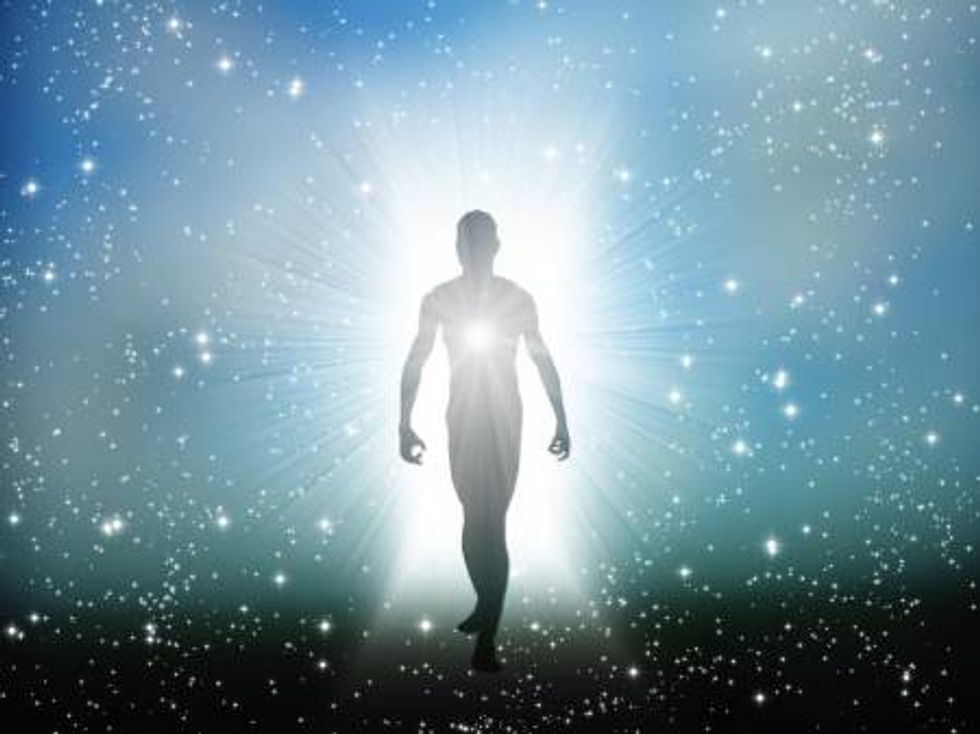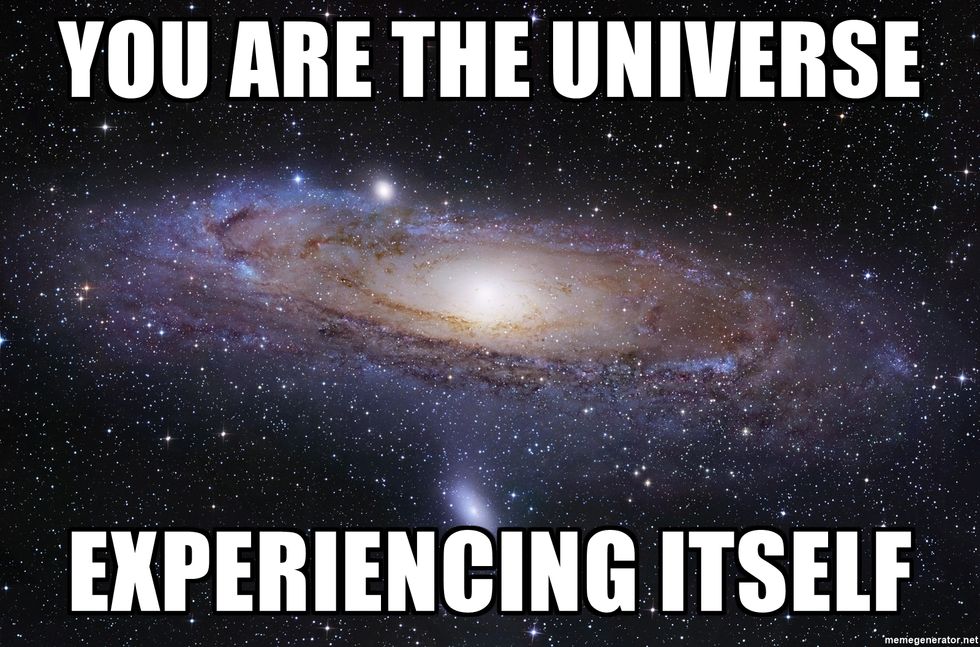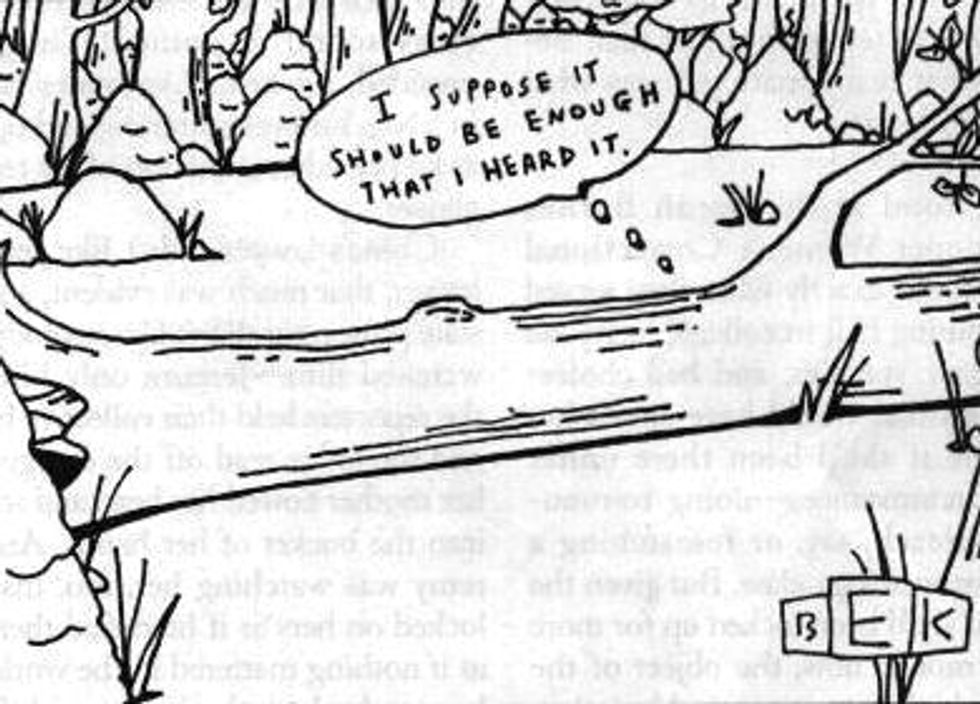1. Biocentrism
Biocentrism is the idea that life created the universe instead of the other way around. The concept argues that everything that transpired in time - from ‘The Big Bang’ to this very moment – was made for humanity to be in the position we are now.
Put otherwise, all reality was created and shaped for man. And this theory does hold validity because the world would be rather redundant without human perception. The universe would be nothing but arbitrary shapes that hold no meaning if humanity was not in place. Everything we perceive on Earth only seems to make sense if it’s in context with man. In other words, the objective (physical matter) was ostensibly produced for the subjective (man, observer) in mind.
“Biocentrism shatters the reader’s ideas of life, time and space, and even death. At the same time, it releases us from the dull worldview that life is merely the activity of an admixture of carbon and a few other elements; it suggests the exhilarating possibility that life is fundamentally immortal.” – Robert Lanza
If nature and the universe was created and shaped for mankind, then there is more to life than meets the eye. Biocentrism uses biology to answer the question of our existence. More importantly, it reasserts the validity of the human enterprise though opining and defending the supernatural natures in life. If nature made reality as we know it for man, then there are undoubtedly unseen phenomena at work.
2) Sublime and the Aesthetics
Philosophers have long thought that a key to transcendence was through the study of the aesthetics and all that is sublime and beautiful in life. Expressed otherwise, the feeling of bewilderment and awe we get when standing in front of a massive landscape or beautiful sunrise is of sublimity.
Nature is in place for man to experience because it triggers emotion and self-reflection within the observer. Romantic philosophers would even surmise that nature is God’s way of communicating with people. As we experience beautiful art, we detach from reality and our ego. Time stands still and our minds are transported elsewhere, where there is no anxiety, fear of oblivion, or minuscule social worries.
When we experience the sublime, nothing matters. It is a glimpse of heaven, the absolute, and sensations far unfamiliar to man. Nature itself is evidence of an imminent God. It is alive and constant.
3) Nature
Nature is alive and that is plain to see. After the advent of the Age of Reason and Enlightenment philosophy, the natural sciences further demonstrated nature as being all there is to life. In fact, Darwinism emphasized all humanity as being simply a form of evolved nature, which maddened countless holy men and culture alike.
Nonetheless, if humanity is part of nature and nature is life/God at work, then this suggests that God is within man as well. All nature is God. As mentioned above, nature is visibly alive. Even when a part of nature dies, rebirth is overtly perceivable all around. Life dies, seeps into the ground, and is reborn again through other forms of nature.
To further emphasize humans as being nature and constant, just listen to silence. You will find that there is no such thing as true silence. Either the birds are chirping, the crickets are making music, or there is some noise far off in the distance. Even when one is in full seclusion, there is no silence because we will always hear the sound of ourselves breathing – which is also another reminder we are alive.
4) Evolution = Transcendence
The onset of Darwinism and empiricism contradicted the accounts from Holy Scriptures and creationism, though it does not entirely refute theism. Many philosophers believe that as nature evolves, we are transcending. Man is evolving, becoming more intelligent, physically bigger, and living longer. We are literally aiming to become immortal, omniscient gods who have control over nature, as opposed to nature having control over man.
As time passes, man will continue to evolve and hopefully find a way to save the planet from its inevitable destruction. Theists will argue that God’s plan is to keep the humanoid race alive as we travel through time and space on a giant rock. This notion is perhaps why evolution is in place: to bring life and nature to consciousness in the form of human beings so that we may find a way to keep life and the planet alive.
5) Subjective Idealism
The invisible natures hold more truth in life than the visible natures. Life and all of our knowledge literally stems from ideas, which are invisible and in our individual minds. In fact, the one thing in life that you can be 100% certain of is your own consciousness and mind. Everything else may simply be a product of and in your mind. Material things are mere perceptions.
If the only absolute truth is the subjective and not the objective, then that exalts the invisible and supernatural as being true.
Only minds exist. Our minds then use our senses to perceive the outside world. There can be a bunch of invisible entities and spirits that exist all around us but remain naked to the human eye but we cannot perceive them. It is the mind that gives significance to the objective and all material items. All we know as reality comes from sensations, perception, and visualizations in our heads. No two people see life the exact same. We can only experience life through our subjective selves. So, while life is unique and individual to each and every person, it is also an enigma and nebulous conception that man can only interpret from our separated state of being.
If life is nothing but ideas (which are invisible) and the only absolute truth lies in our consciousness (I think, therefore I am), then believing in a God should not seem that far-fetched.
Humans are literally spirits in a temporary vessel, so why not have more faith in other spirits and the supernatural as a whole?
Belief in God may be difficult because His name has been diluted in modern culture, but theism can still be backed by science.























